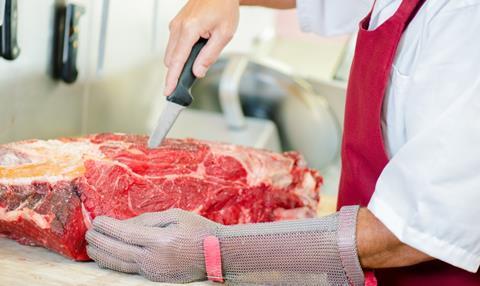More industry bodies from across the UK meat sector have welcomed the latest report from the Environment, Food and Rural Affairs Committee (EFRA) covering ongoing labour shortages, but underlined the need for action on its recommendations.

The Association of Independent Meat Suppliers (AIMS), the National Pig Association (NPA) and National Farmers’ Union (NFU) have joined the British Meat Processors Association (BMPA) in voicing their concern following the report’s findings.
According to BMPA, the new report from the EFRA committee highlights the damage that government inaction is having on the UK food sector. CEO of the BMPA Nick Allen said that it was a concern that, over the past few years, the government has consistently taken a ‘wait and see’ approach to looming labour shortages in Britain’s food supply chain.
He added: “We would urge the government to use their newfound control over our immigration system to solve the chronic labour crisis that is currently impeding ours and many other sectors across the whole economy.”
Still no action?
A spokesperson for AIMS Tony Goodger said: “The publication of EFRA’s fourth report on labour shortages in the farming and food sector suggests that no one in government appears to be taking any notice of their recommendations.
“Four reports. Are we to expect a 5th, a 6th? And still no action?”
He said that the recommendations made by EFRA are all ones which AIMS supports.
The Association is encouraging businesses within the meat and poultry sector facing staffing shortages to write to their MPs and ask when action on these is likely to be progressed.
Goodger added: “Just this morning we have heard from members experiencing issues with the supply of bulk gases for processing. This is not due to a shortage of the gas but a shortage of tanker qualified HGV drivers here in the UK.
“AIMS is ready to help any of its members raise EFRA’s recommendations with their MPs, and we hope that there will not be a need for the committee to meet again on the subject of labour shortages.”
Fighting for survival
The NPA has called on the government to learn from the recent crisis and work with the industry to address the labour issues that have crippled the pig sector over the past year. According to the Association, EFRA’s report highlighted “the desperate problems the shortage of butchers in processing plants have caused the pig sector and accused Ministers of not taking them seriously enough.”
Commenting on the publication, NPA chief executive Zoe Davies said: “This is an incredibly thorough and insightful report that has got to the very nub of the labour issues facing the food and farming sector.
“The report is clear that labour shortages, brought about in part by changes to government policy, have had a huge impact on the pig sector, which is still fighting for its survival.
“The government now needs to take stock and adopt these sensible recommendations in full. We want to see the government, and the Home Office in particular, take this issue seriously.”
Davies added that Ministers needed to stop deflecting blame onto the pig industry and sit down with representatives to understand the problems and find solutions.
She said: “I want to stress that the NPA agrees with the report’s long-term goal of reducing our reliance on migrant labour. But there is much to work through before we can get there, and we need to rethink the policies currently in place so that the industry can employ enough people to produce the products the British public demand.
“We are hugely grateful to Neil Parish and his committee for delivering such a coherent and balanced report – and sincerely hope it can lead to better things.”
NPA senior policy adviser Charlie Dewhirst highlighted some of the report’s key recommendations for the pig industry. Dewhirst’s analysis can be found here.
Government must act urgently
NFU president Minette Batters said that the Efra committee’s report backed up the NFU’s long-standing call for a more enabling immigration policy which mitigates against the labour shortages and structural issues that have existed throughout the food supply chain for months.
She said: “To ensure stability in domestic food production, the government needs to act urgently to give farmers and growers the confidence they need to invest in domestic production and enable British food and farming to thrive.
“The NFU, alongside the whole food supply chain, continues to seek a review of the current immigration system, including the Shortage Occupation List and Seasonal Worker Scheme as recommended by the Migrant Advisory Committee (MAC) 20 months ago.”
Batters claimed that a review would help ensure that the labour needs of the food supply chain are met and help to shore up the estimated 500,000 vacancies left unfilled across the food and farming industry.
She said: “These vacancies threaten our own UK food security, and our ability to contribute to the nation’s economy through increased exports.”
The NFU president explained that farm businesses are trying to recruit staff domestically, but rising wages have had little impact because the labour pool is so limited. She added that the industry was currently facing rapidly rising costs on farm, continued global uncertainty due to the conflict in Ukraine and the real possibility of a crisis of confidence among the nation’s farmers and growers.
“A solution to this crisis will need the right people with the right skills and training available in rural areas where many roles are based. In addition, we are asking government to release the additional 10,000 visas it already can under the Seasonal Workers Scheme, which are needed to ensure labour shortages are kept to a minimum as we reach peak harvest time.”
This story was originally published on a previous version of the Meat Management website and so there may be some missing images and formatting issues.












